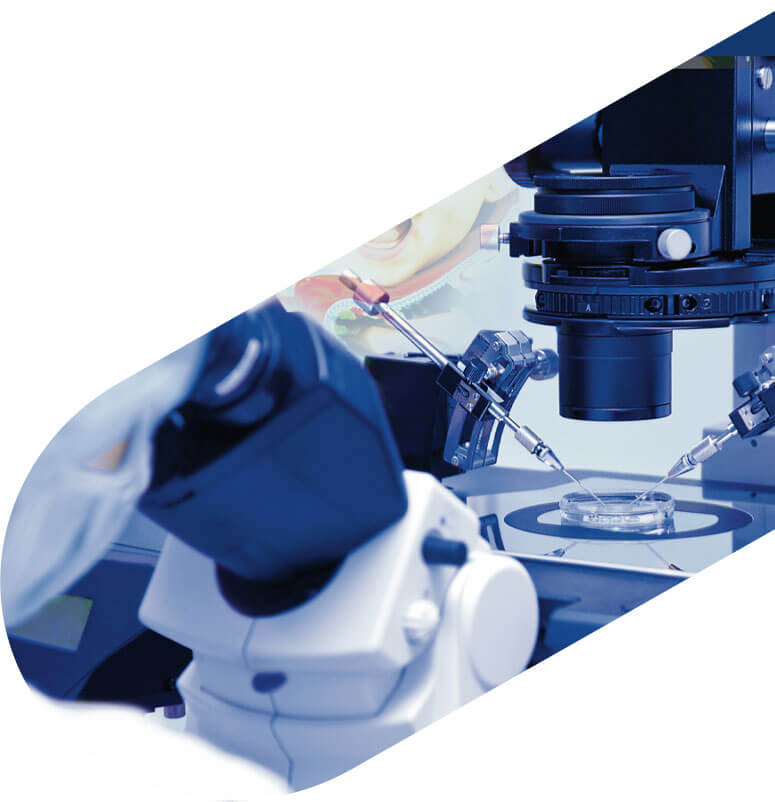
In vitro fertilization Turkey: solutions and benefits
Infertility is one of the haunting problems that can befall any couple wishing to have a child. Fortunately, there are now ways of dealing with infertility, thanks to constant advances in science. And one of the most effective fertility treatments is :
In vitro fertilization in Turkey
In vitro fertilization in Turkey, or IVF, is a fertility treatment that literally means fertilization carried out outside the body, where an egg is extracted from a woman’s ovaries and injected with a man’s sperm.
How much does in vitro fertilization (IVF) cost in Turkey?
The average cost of in vitro fertilization (IVF) in Turkey is low.
When is in vitro fertilization used?
Male infertility, female infertility or both may be the reason why this infertility treatment is recommended.
Male infertility
Moderate to severe cases of male infertility can be treated with IVF:
- Azoospermia
- Oligozoospermia
- Teratozoospermia
- Asthenozoospermia
- Cryptozoospermia
Female infertility
In the case of women, fertility problems are often linked to the following factors:
- Ovulation problems caused by endocrine disorders
- Tubal factor infertility
- Uterine infertility
- Cervical factor infertility
- Endometriosis
What is the timetable for an in vitro fertilization cycle?
Once a couple decides to undergo an artificial fertilization procedure, there are several steps involved in the process. As with any medical procedure:
Stimulation
Medication, commonly known as fertility drugs, is given to the woman to stimulate ovulation, starting about a month before the actual procedure.
During this stage, the woman will have regular Trans vaginal ultrasounds to examine the ovaries and blood tests to check hormone levels.
Egg retrieval
A minor surgery, called follicular aspiration, is performed to remove the eggs from the woman’s body. Using ultrasound images as a guide, the doctor inserts a fine needle into the vagina, into the ovary and the sacs (follicles) containing the eggs. The needle is connected to a suction device that extracts the eggs and fluid from each follicle. The procedure is repeated for the other ovary.
Insemination and fertilization
The man’s sperm is placed with the best eggs and stored in a dedicated chamber. The mixing of sperm and egg is called insemination. Sperm usually penetrates (fertilizes) an egg a few hours after insemination.
Intracytoplasmic sperm injection (ICSI) can be used to facilitate the fertilization process. During ICSI, the sperm is washed and the best sperm is selected. These sperm are then injected directly into the egg.
Embryo culture
When the fertilized ovum divides, it becomes an embryo. Embryos are classified as they develop. Grades are determined by the way the embryos divide, their shape and overall quality. The best embryos will be used for transfer.
Preimplantation genetic diagnosis
Couples with a high risk of transmitting a genetic (hereditary) disorder to a child may consider pre-implantation genetic diagnosis (PGD). The procedure is performed around 3-4 days after fertilization. Embryologists remove a single cell from each embryo and screen the material for specific genetic disorders.
Embryo transfer
Embryos are transferred 3 to 5 days after laying. Embryo quality may change as they develop. Waiting until the fifth day can help determine which embryos are of the highest quality.
The transfer procedure is carried out in the clinic while the woman is awake. The doctor inserts a thin tube (catheter) containing the embryos into the woman’s vagina, through the cervix and into the uterus.
After transfer, if an embryo sticks to (implants) in the lining of the uterus and grows, pregnancy results.


Advantages and disadvantages of in vitro fertilization in Turkey
Like any other infertility treatment (e.g. intrauterine insemination or IUI), in vitro fertilization procedures in Turkey have a series of advantages and disadvantages. You can find them explained below.
Advantages of artificial insemination
- Consistently high success rates
- Couples with severe infertility problems have the chance to become parents
- The possibility of achieving fertilization even in cases of severe male infertility, such as obstructive azoospermia.
- The use of donor eggs and donor sperm is possible, increasing the number of infertile patients who can become parents thanks to in vitro fertilization in Turkey.
In general, the potential side effects are not serious.
Disadvantages of in vitro fertilization
Patients must self-administer fertility drugs, which can lead to complications such as:
- Malaise
- Cramps
- Fever

